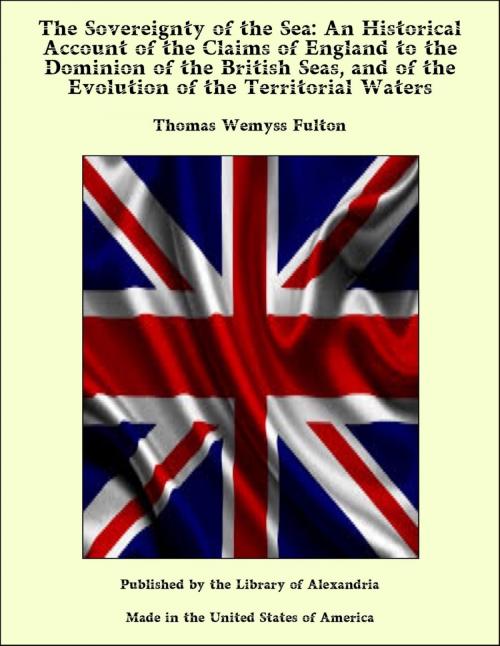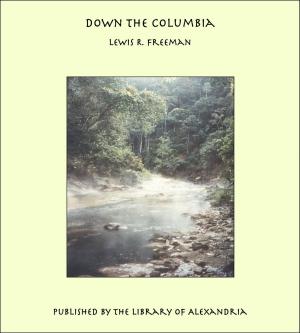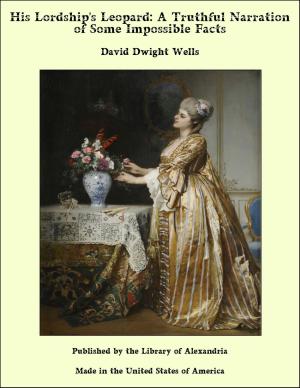The Sovereignty of the Sea: An Historical Account of the Claims of England to the Dominion of the British Seas, and of the Evolution of the Territorial Waters
Nonfiction, Religion & Spirituality, New Age, History, Fiction & Literature| Author: | Thomas Wemyss Fulton | ISBN: | 9781465616678 |
| Publisher: | Library of Alexandria | Publication: | March 8, 2015 |
| Imprint: | Language: | English |
| Author: | Thomas Wemyss Fulton |
| ISBN: | 9781465616678 |
| Publisher: | Library of Alexandria |
| Publication: | March 8, 2015 |
| Imprint: | |
| Language: | English |
When the claim of the English crown to the sovereignty of the British seas became a question of international importance in the early part of the seventeenth century, the records of history and the treasures of ancient learning were searched for evidence to establish its antiquity. Some of the greatest lawyers and scholars of the time took part in the task, and they were not always content with the endeavour to prove that the claim was in conformity with the laws of England as an old heritage of the crown, but they tried to trace it back to a remote past. Selden, who was incomparably the ablest and most illustrious champion of the English pretension, as well as Boroughs and Prynne and other writers of lesser note, laboured with more or less erudition and ingenuity to show that the British dominion in the adjoining seas was anterior to the Roman occupation. From the ancient Britons it was supposed to have passed to the Roman conquerors as part and parcel of the British empire, and to have been exercised by them during their possession of the island. It is unnecessary to discuss the evidence and arguments for these contentions. They are for the most part drawn from scattered passages or even phrases in the writings of classical authors, to which a strained and improbable significance was assigned. An example may be given from Selden, who, in referring to the well-known passage in Solinus in which Irish warriors are described as decking the hilts of their swords with the tusks of sea-beasts (walrus), first tries to show that the passage applied also to the Britons, and then argues that there must have been a great fishing and a large number of fishermen to provide sufficient material, the conclusion being that the British seas were “occupied” by navigation and fishing. In reality the walrus tusks came by barter from the north, and there is little or no evidence to show that the ancient Britons fished for anything except salmon. At the utmost it may be said that the Romans were masters of the British seas, or parts of them, in a military sense. During their occupation of Britain they were also in possession of Gaul, and thus held both coasts of the narrow sea, and no doubt exercised authority over it, as the Norman and Angevin kings under similar circumstances did later. Throughout the Anglo-Saxon period of English history evidence of the existence of a sovereignty over the adjoining sea, or even of a pretension to it, is almost as unsatisfactory. Here again the authors who championed mare clausum professed to find in very ordinary events arguments in favour of their case. The seafaring habits of the Teutonic invaders and their daring and valour—they were described by the Roman poet as sea-wolves, fierce and cunning, with the sea as their school of war and the storm their friend—were regarded as proof that they possessed maritime sovereignty after their conquest of Britain. The Danegeld, a tax which was originally levied as a means of buying off the Danes, or of providing a fleet to resist their attacks, was thought by Selden to show the same thing. So also with the fleets collected by Alfred, Edgar, Ethelred, and other English kings to oppose the invasions of the Northmen,—they were believed to have secured and maintained dominion over the sea. Even the beautiful lesson in humility which Cnut desired to convey to his courtiers when, seated in regal pomp on the seashore, he vainly commanded the inflowing tide to stay its course at his behest, was seized on for the same end. “Thou, O sea,” said the great king, “art under my dominion, like the land on which I sit; nor is there any one who dares resist my commands. I therefore enjoin thee not to come up on my land, nor to presume to wet the feet or garments of thy lord.” In these words Selden professed to find clear proof that Cnut claimed the British seas as part of his dominions.
When the claim of the English crown to the sovereignty of the British seas became a question of international importance in the early part of the seventeenth century, the records of history and the treasures of ancient learning were searched for evidence to establish its antiquity. Some of the greatest lawyers and scholars of the time took part in the task, and they were not always content with the endeavour to prove that the claim was in conformity with the laws of England as an old heritage of the crown, but they tried to trace it back to a remote past. Selden, who was incomparably the ablest and most illustrious champion of the English pretension, as well as Boroughs and Prynne and other writers of lesser note, laboured with more or less erudition and ingenuity to show that the British dominion in the adjoining seas was anterior to the Roman occupation. From the ancient Britons it was supposed to have passed to the Roman conquerors as part and parcel of the British empire, and to have been exercised by them during their possession of the island. It is unnecessary to discuss the evidence and arguments for these contentions. They are for the most part drawn from scattered passages or even phrases in the writings of classical authors, to which a strained and improbable significance was assigned. An example may be given from Selden, who, in referring to the well-known passage in Solinus in which Irish warriors are described as decking the hilts of their swords with the tusks of sea-beasts (walrus), first tries to show that the passage applied also to the Britons, and then argues that there must have been a great fishing and a large number of fishermen to provide sufficient material, the conclusion being that the British seas were “occupied” by navigation and fishing. In reality the walrus tusks came by barter from the north, and there is little or no evidence to show that the ancient Britons fished for anything except salmon. At the utmost it may be said that the Romans were masters of the British seas, or parts of them, in a military sense. During their occupation of Britain they were also in possession of Gaul, and thus held both coasts of the narrow sea, and no doubt exercised authority over it, as the Norman and Angevin kings under similar circumstances did later. Throughout the Anglo-Saxon period of English history evidence of the existence of a sovereignty over the adjoining sea, or even of a pretension to it, is almost as unsatisfactory. Here again the authors who championed mare clausum professed to find in very ordinary events arguments in favour of their case. The seafaring habits of the Teutonic invaders and their daring and valour—they were described by the Roman poet as sea-wolves, fierce and cunning, with the sea as their school of war and the storm their friend—were regarded as proof that they possessed maritime sovereignty after their conquest of Britain. The Danegeld, a tax which was originally levied as a means of buying off the Danes, or of providing a fleet to resist their attacks, was thought by Selden to show the same thing. So also with the fleets collected by Alfred, Edgar, Ethelred, and other English kings to oppose the invasions of the Northmen,—they were believed to have secured and maintained dominion over the sea. Even the beautiful lesson in humility which Cnut desired to convey to his courtiers when, seated in regal pomp on the seashore, he vainly commanded the inflowing tide to stay its course at his behest, was seized on for the same end. “Thou, O sea,” said the great king, “art under my dominion, like the land on which I sit; nor is there any one who dares resist my commands. I therefore enjoin thee not to come up on my land, nor to presume to wet the feet or garments of thy lord.” In these words Selden professed to find clear proof that Cnut claimed the British seas as part of his dominions.















